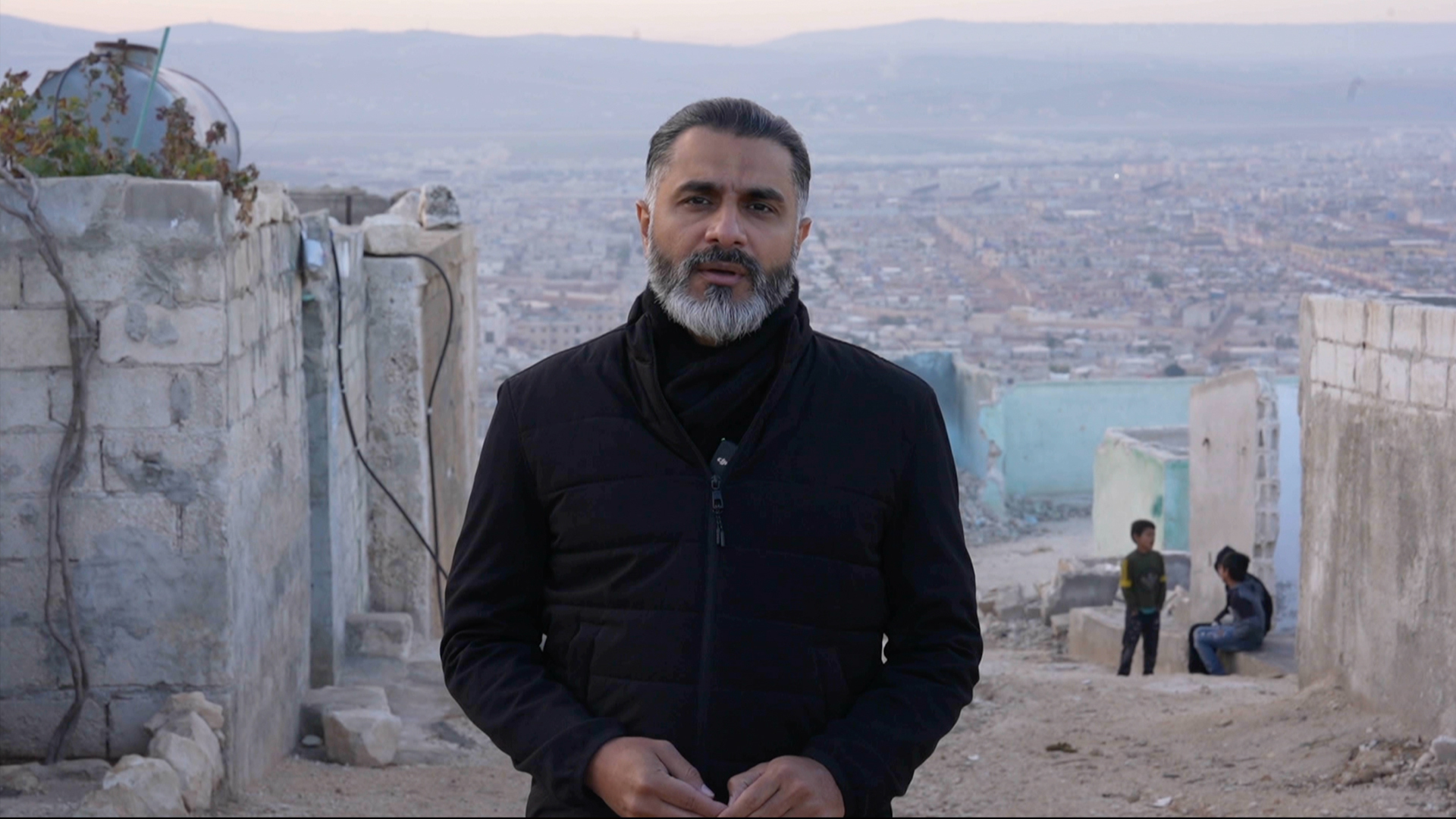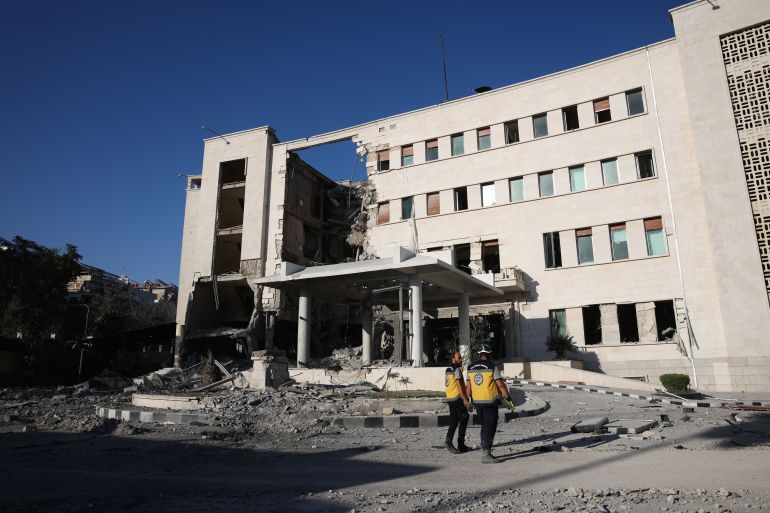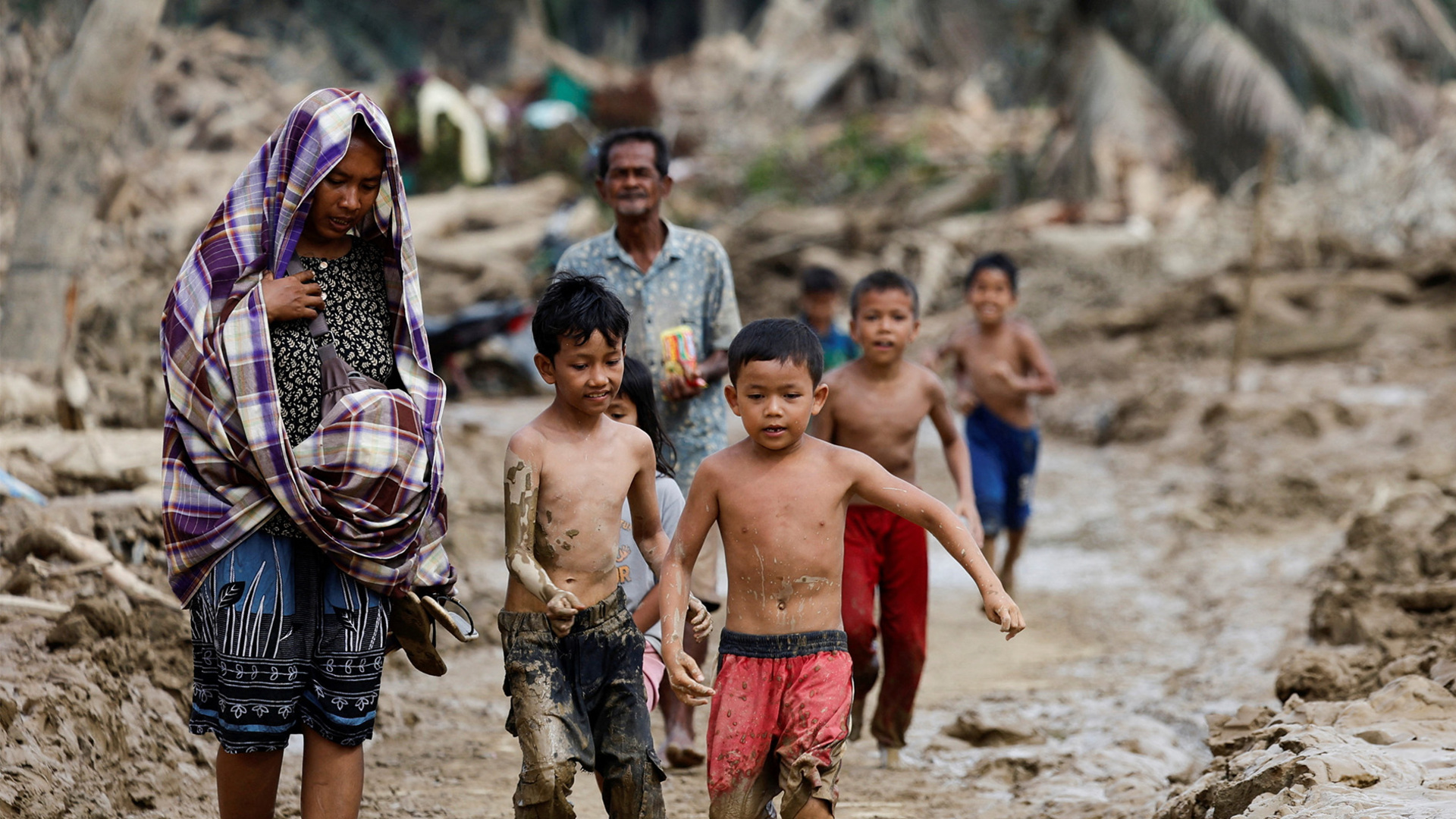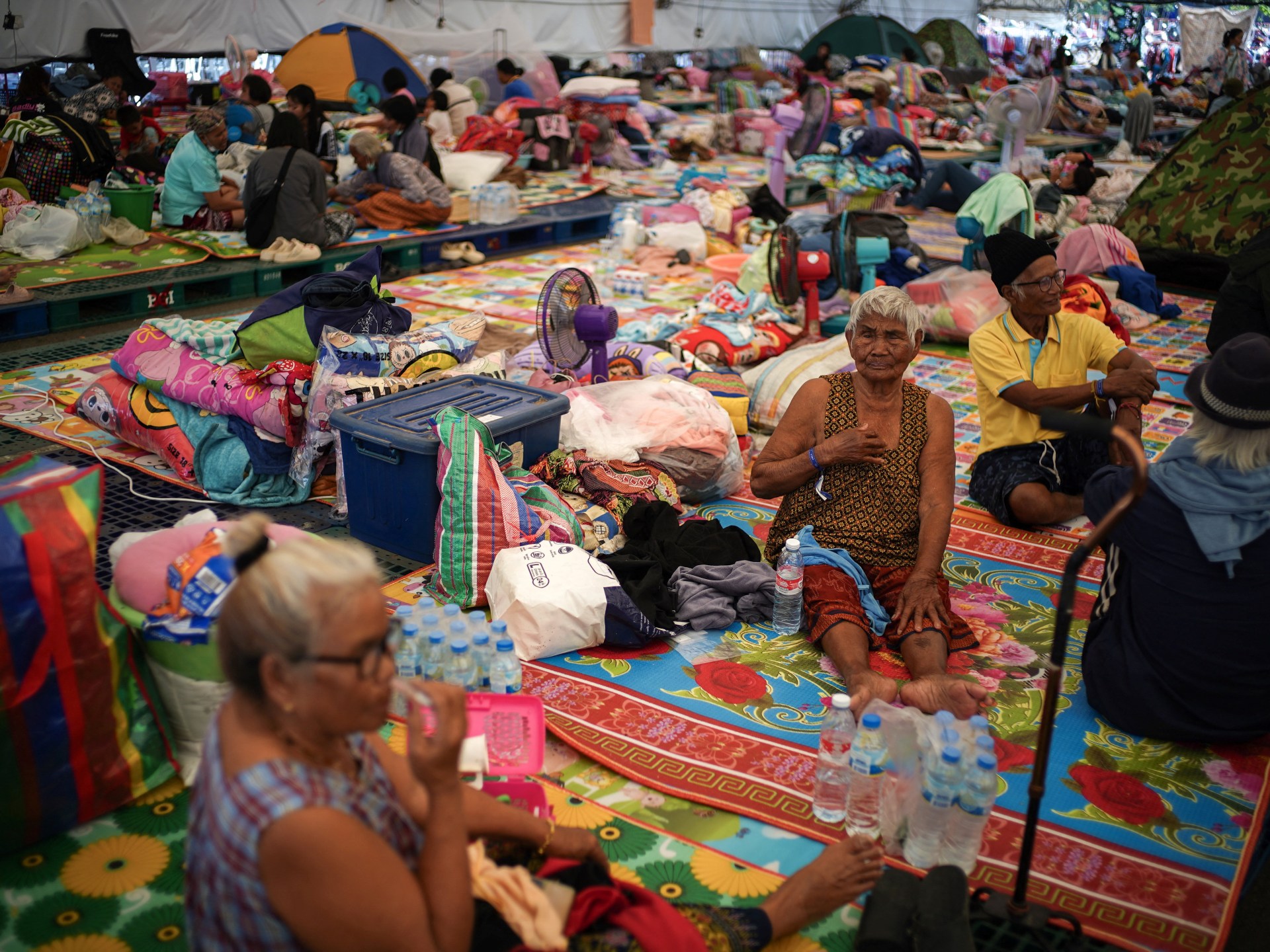Thailand and Cambodia have traded blame for renewed clashes along their disputed border and pledged to continue the fighting, as the death toll climbs in the latest outbreak of hostilities between the neighbours.
Cambodia’s Ministry of National Defence said on Tuesday nine civilians had been killed and 20 injured since Monday, while the Thai military said two more deaths meant that three soldiers had been killed and 29 wounded on its side since clashes resumed.
Recommended Stories
list of 4 itemsend of list
Renewed fighting broke out on Sunday night in a skirmish in which one Thai soldier was killed, forcing tens of thousands of people from their homes and shattering an uneasy peace that had held since five days of clashes in July.
That bout of fighting, involving the exchange of rockets and heavy artillery fire and fuelled by competing territorial claims along their border, resulted in at least 48 deaths on both sides and the temporary evacuation of more than 300,000 civilians before a ceasefire was brokered by Malaysian Prime Minister Anwar Ibrahim and United States President Donald Trump.
Thailand, however, suspended the implementation of the ceasefire pact last month, following a landmine blast that maimed one of its soldiers.
Cambodia ‘forced to fight’
Cambodia’s powerful Senate President Hun Sen claimed in a statement on social media on Tuesday that the military had been refraining from firing at Thai forces the previous day, but had begun shooting back overnight.
He said targeting areas where Thai forces were advancing would allow Cambodia’s military to “weaken and destroy enemy forces through counterattacks”.
“Cambodia wants peace, but Cambodia is forced to fight back to defend its territory,” the former prime minister said.
Thailand’s army said Cambodian forces had fired artillery at a village in eastern Sa Kaeo province early on Tuesday, although no casualties were reported, and that Cambodia attacked Thai positions with rockets and drones.
Each side blames the other for firing the first shots.
‘No space for diplomacy’
In a statement on Tuesday morning, the Thai navy said it was taking action to expel Cambodian forces from its territory in the coastal province of Trat.
The navy said Cambodian forces there were increasing their presence, deploying snipers and heavy weapons, developing fortified positions and digging trenches, in what it viewed “as a direct and serious threat to Thailand’s sovereignty”, prompting the launch of operations to expel them.
Speaking to Al Jazeera, Thailand’s Foreign Minister Sihasak Phuangketkeow said Cambodia is “not ready” for peace negotiations.
“They say they’re ready on one hand, but their actions on the ground are entirely in the opposite direction,” he said.
“Diplomacy will work when the situation provides the space for diplomacy,” he said. “I’m sorry to say that right now we don’t have that space.”
Although the ongoing hostilities and military operations are bringing losses to both sides, Phuangketkeow added that “we want the Cambodian side to show that they’re ready to stop what they’re doing – and then, of course, we can consider the prospect for diplomacy and negotiations”.
Both sides say the renewed violence has forced civilians on either side of the border to flee to shelter.
A statement from Thailand’s 2nd Army Region, situated along the border, said almost 500 temporary shelters have been set up in four border provinces, accommodating more than 125,000 people.
For more than a century, Thailand and Cambodia have contested sovereignty at points along their 817km (508-mile) border, first mapped in 1907 by France when it ruled Cambodia as a colony.
Simmering tension has occasionally exploded into skirmishes, such as a weeklong artillery exchange in 2011, despite attempts to resolve the dispute peacefully.
A 2013 ruling by the International Court of Justice (ICJ) upheld a 1962 judgement by the same body awarding part of the land around Preah Vihear temple, a UNESCO World Heritage Site, to Cambodia and instructing Thailand to withdraw its personnel stationed in the area.
Thailand has refused to acknowledge the ICJ’s jurisdiction in this issue.






